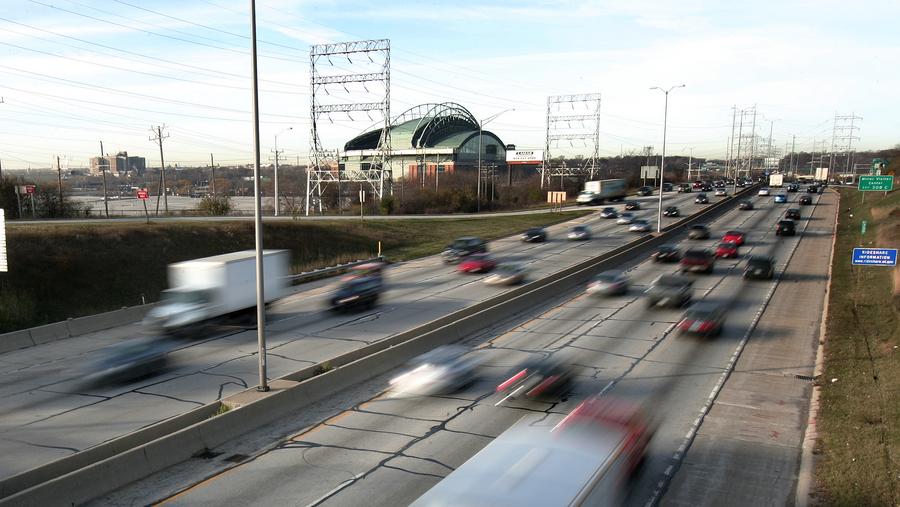The Wisconsin Department of Transportation will spend up to one more year studying traffic levels and collecting public input on its controversial proposal to expand Interstate 94 around the Stadium Interchange.
Environment and civil rights organizations in Milwaukee were pressuring state and federal officials to perform more studies for the $991 million reconstruction project. The proposal would widen a 3.5-mile section of I-94 between 16th and 70th streets, creating four driving lanes in each direction.
The DOT on Thursday announced the decision to expand its planning process, saying it could mean final approvals for a project plan in late 2022. State officials had previously speculated approvals could’ve been possible by the end of this year.
Craig Thompson, WisDOT secretary designee, said department officials opted for the additional planning effort. It was not ordered by Federal Highway Administration officials who must sign off on the final project plan.
“This will allow us time to better assess the changes in traffic patterns resulting from the pandemic, and to receive more public input,” Thompson said. “It will also help us make certain that our efforts to ensure racial equity with this project are comprehensive and aligned with federal priorities.”
About 30 organizations wrote a mid-March letter to U.S. DOT Secretary Pete Buttigieg asking for more study of the I-94 project. That letter argued the highway expansion plan used outdated traffic data from 2009, and that spending money expanding the highway without improving public transit would not help minority communities in Milwaukee where fewer residents own cars.
Some of the organizations involved in that letter held an online meeting Friday with FHA acting administrator Stephanie Pollack where they continued asking for further studies, said Dennis Grzezinski, a Milwaukee attorney who is among the co-signers of the March letter and participants in that meeting. He said the DOT’s announcement on Thursday “sounds very much like, if not precisely like, what a lot of Milwaukee organizations have been asking them to do.”
“That provides the opportunity for lots of folks to provide them with more information,” Grzezinski said. “I am pleased to have them taking this more careful and more thorough look at today’s world.”
Members of the local business community had argued in the opposite direction, asking federal officials to approve the reconstruction based on the DOT’s already completed 2016 plan for I-94 east-west. In a March 29 letter to Buttigieg, those 27 businesses, associations and unions called I-94 a crucial corridor for business, and one of the “most congested, unreliable, and dangerous” in the state.
“Further postponing this project pushes the project’s benefits into the future and increases costs,” the letter argues.
In that letter, the business community noted a two-year delay could result in $44 million to $60 million in project cost increases due to inflation.
Thompson said the additional studies will include new traffic counts for that section of I-94.
“We want to make sure people are comfortable we are looking at the most recent and current data,” he said.
There also will be more outreach to organizations, including those involved in the March letter to federal officials, Thompson said.
“What we will be doing through this process is making sure we are reaching out to every group that has concerns,” he said. “In the end, we want to take all of the relevant information and make sure we are making decisions based on the best data.”
Thompson said the additional studies would build off the previous environmental impact statement completed for the I-94 east-west rebuild. That EIS was approved by FHA in 2016. The project was put on hold after state officials didn’t fund it. Wisconsin Gov. Tony Evers in July 2020 announced his intent to restart the planning process and start the reconstruction in 2023 or later.
